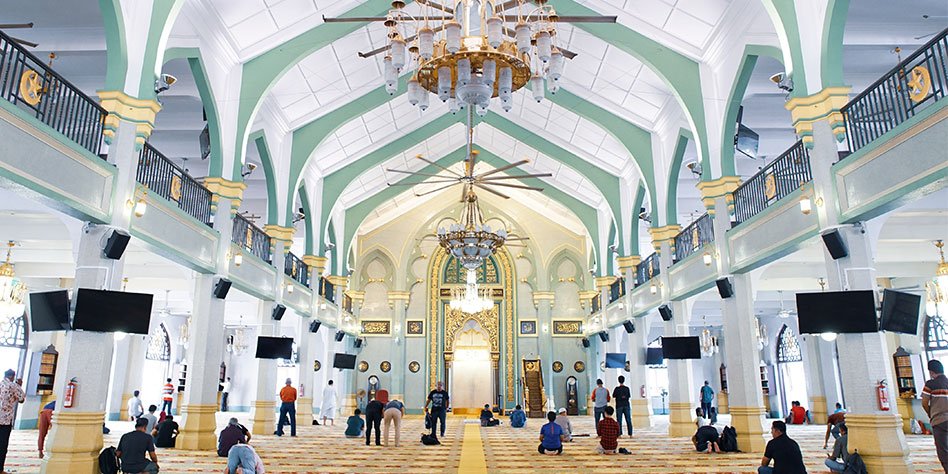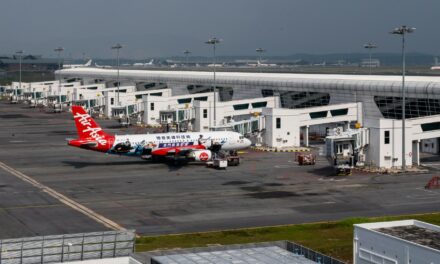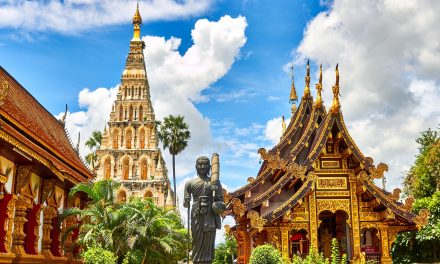As Muslim communities around the world observe Ramadan, the religious event holds particular significance in Singapore with around 15% of the population identifying as Muslim.
Islam is one of the major religions in Singapore being the third-largest religious group in the country after Buddhism and Christianity.
Ramadan is the ninth month of the Islamic calendar, during which Muslims observe a period of fasting, prayer, and reflection. Muslims who are physically able to fast abstain from food, drink, and other physical needs from dawn until sunset each day throughout the month of Ramadan.
DNA spoke to Mohamed Imran Mohamed Taib, director of Dialogue Centre Singapore, about the holiest month in the Islamic calendar and what Singaporeans can expect.
Dialogue Centre Singapore is an organisation which promotes interfaith understanding in Singapore through public education and engagements.
“Ramadan is a month of pious devotion. It is also a month of communal gatherings as Muslims break their fast (known as ‘iftar’ in Arabic or ‘buka puasa’ in Malay) with family, friends, and the wider society,” Imran said.
In the daytime, Imran said, life goes on as normal, while Ramadan nights are particularly alive in Singapore.
“Many Muslims would gather in mosques to perform the night prayers known as terawih. There are also Ramadan bazaars that sell food and other items in preparation for the breaking of fast, pre-dawn meal or for the coming celebration of Eid al-Fitr (or Hari Raya Aidilfitri in Malay) to mark the end of Ramadan,” Imran said.
Eid al-Fitr occurs at the end of the holy month of Ramadan, which is the first day of Shawwal according to the Islamic calendar. Shawwal is the tenth month of the Islamic calendar and follows the month of Ramadan.
Since the Islamic calendar is based on the lunar cycle, the date of Eid al-Fitr will be earlier by a few days each year. This year, it falls on April 22, compared to May 3 last year.
“Muslims in Singapore determine the day of Eid al-Fitr by using the method of astronomical calculations,” Imran said, “The Mufti of Singapore will make a ceremonial announcement on radio and television a day or two before the coming of Eid al-Fitr.”
A Mufti is an Islamic scholar who makes religious rulings for the community.
Eid al-Fitr marks the end of fasting and the return to ‘fitrah’, or one’s natural state, “after a month of cleansing the soul and renewing one’s commitment to God”, Imran said.
Apart from the religious observances, and specific to Muslim Malays, there is also the tradition of lighting lamps throughout the night for the last 10 days of Ramadan, Imran said.
“This is known as ‘malam tujuh likur’. The reason is because the final nights of Ramadan are extra special. Muslims are encouraged to stay up to perform extra devotional acts such as doing night prayers and reciting the Qur’an.”
“The final nights are also the busiest in terms of preparing for the Hari Raya celebration. The extra [lights] help to keep one awake to perform night prayers, clean the house or soak in the festive mood!”
Eid al-Fitr is also known as Hari Raya Aidilfitri in Malay. Hari Raya is a day of renewing ties and seeking forgiveness from each other.
“It is a joyous occasion where you will find great hospitality. In Singapore, it is common to serve local food such as ketupat (rice cake) and rendang (a meat dish) as well as the various kuih (cookies and snacks). Children will also receive ‘green packets’ containing money to spread the joy,” Imran said.
In other parts of the world, Eid al-Fitr is only celebrated for one day, while Malays celebrate Hari Raya for the full month.
“This is a local tradition that considers the many families, neighbours, friends and relatives to be visited. You cannot simply do all the home visits in a day!” Imran said.
This means that many Malays will still be dressed in traditional Malay outfits, such as baju kurung or kebaya, throughout the month when they are doing home visits.
Charity is a big part of the Islamic faith, with Muslims being particularly generous during the holy month of Ramadan.
This charity comes in the form of zakat fitrah, which is a payment made by Muslims meant as relief aid to the poor and needy. The amount to be paid per person is the equivalent of 2.3kg of staple food or rice in the context of Singapore, Imran said.
This year, the Islamic Religious Council of Singapore, which is the highest authority on Islam in Singapore, stipulates the minimum amount of SGD5.00 to be paid per person. This money is paid through the various channels managed by mosques or Muslim organisations.
“Charity can also be in the form of good deeds such as volunteering in mosques or sharing home cooked meals with neighbours and friends. Muslims believe that any good deed performed in Ramadan will have multifold rewards in the afterlife,” said Imran.
Written by: Greg Roxburgh.







